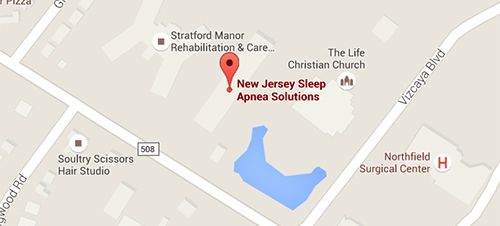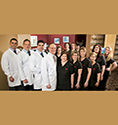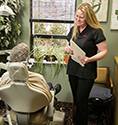How Sleep Apnea Affects Your Sleep Cycle
Submitted by New Jersey Snoring Solutions on Tue 02/17/2015 - 11:20

Have you ever wondered what happens after your head hits the pillow every night? Normally, your body enters a specific sleep cycle, which is essential for maintaining a strong memory, restoring physical energy and other physiological functions. You need deep, restorative sleep for your mental and physical health.
However, obstructive sleep apnea (OSA), a condition in which breathing stops or becomes very shallow while sleeping, will jolt you out of your natural sleep rhythm and disrupt your sleep cycle. Over time, chronic sleep deprivation may lead to certain serious health conditions.
Here, the team at New Jersey Sleep Apnea Solutions describes the sleep cycle and how sleep apnea interferes with it.
A Normal Sleep Cycle
The normal sleep cycle lasts about 90 minutes and includes deep, rapid eye movement (REM) sleep and light, non-REM sleep. There are five progressive stages of the sleep cycle:
Stage 1: Extremely light non-REM sleep
Transition to sleep; muscle activity slows down
Stage 2: Light non-REM sleep
First stage of true sleep; heart rate slows; body temperature decreases
Stage 3: Non-REM sleep
Deep sleep begins; blood flow directed away from brain to the muscles; difficult to awaken
Stages 4 and 5: REM sleep
Very deep sleep; bursts of rapid eye movement; muscles relax; heart rate increases; dreaming occurs
When Sleep Apnea Disrupts the Sleep Cycle
Experts believe that obstructive sleep apnea usually occurs during deep REM sleep, as the brain processes the day’s experiences and organizes memory. If you have a night of disruptive REM sleep, your mental acuity can suffer. For example, you might have trouble concentrating. If you work a physically demanding job, such as operating heavy machinery, this lack of quality sleep can be dangerous to your safety because it makes you more accident-prone.
Over time, chronic sleep deprivation can lead to more serious health concerns. It may increase your risk of weight gain, stroke, heart disease and high blood pressure.
Seeking Sleep Apnea Treatment
Now that you understand how obstructive sleep apnea disrupts your normal sleep cycle and the possible side effects of chronic sleep deprivation, you can see why it is critical to seek treatment for sleep apnea.
If you or a loved one suffers from sleep apnea, please contact New Jersey Sleep Apnea Solutions for assistance. We can help diagnose your disorder and explain the available treatment options, so that you can enjoy restful, restorative sleep. Call us at (855) 949-7667 today.







